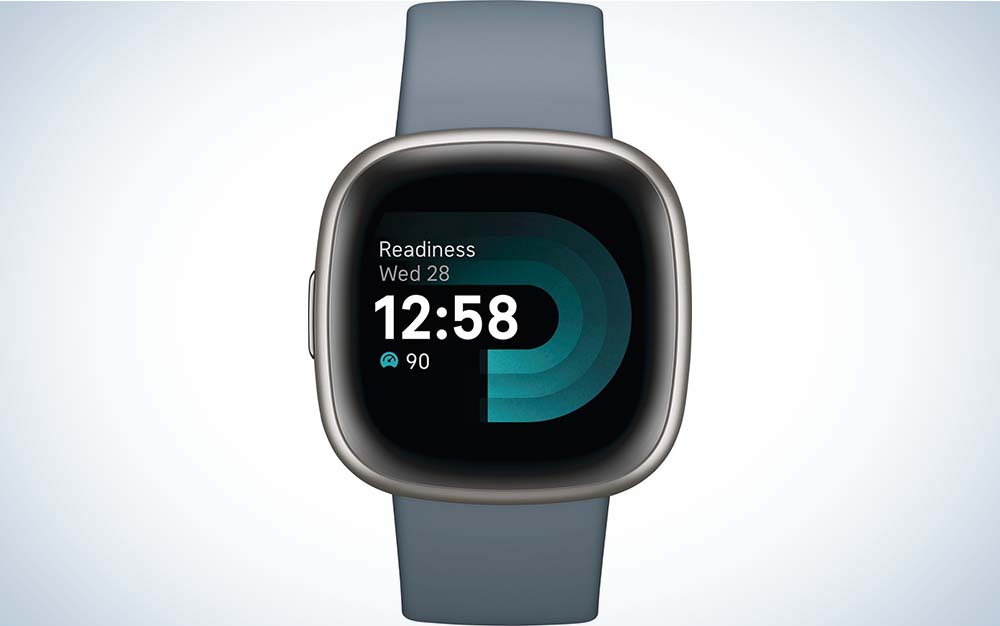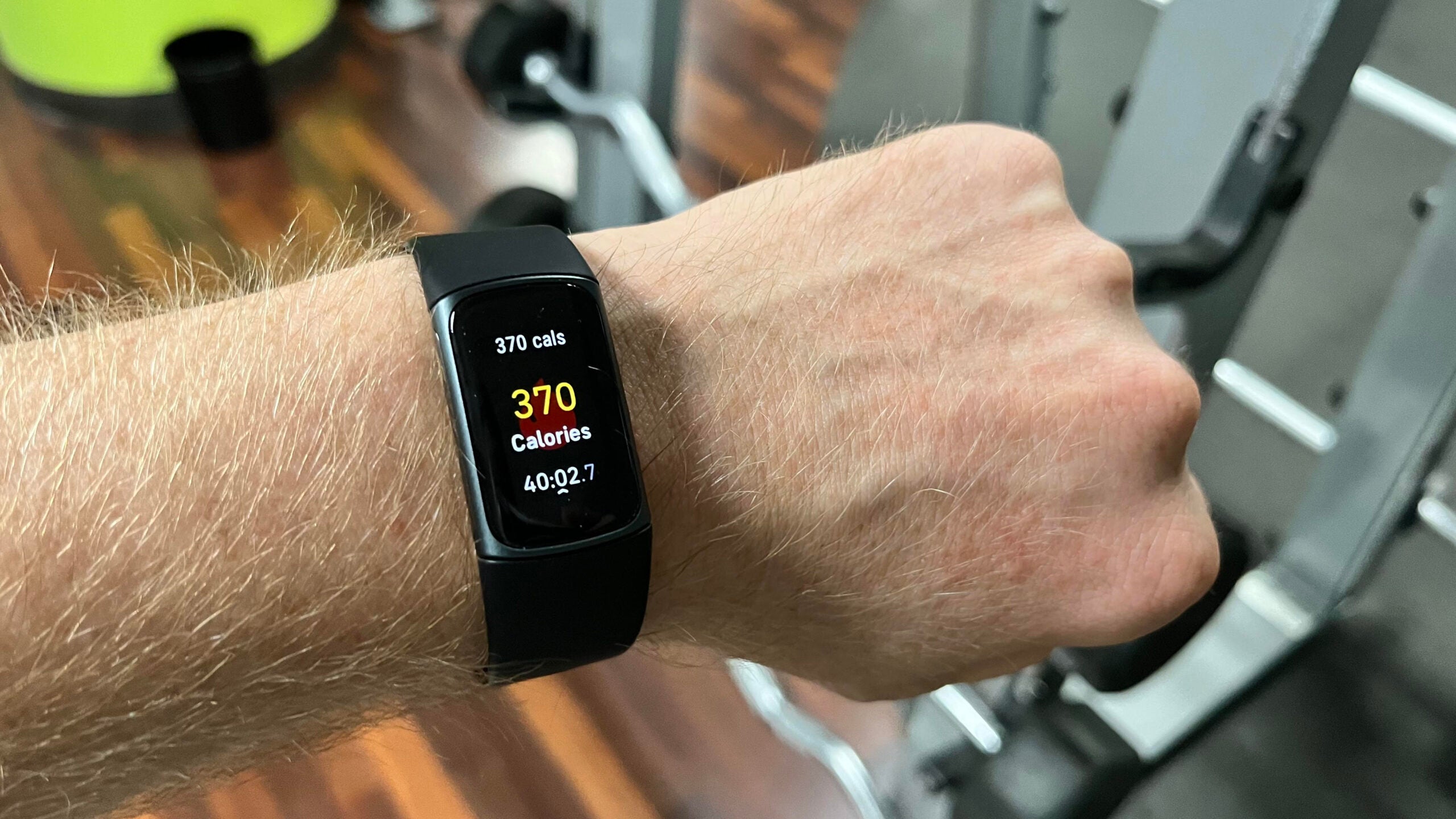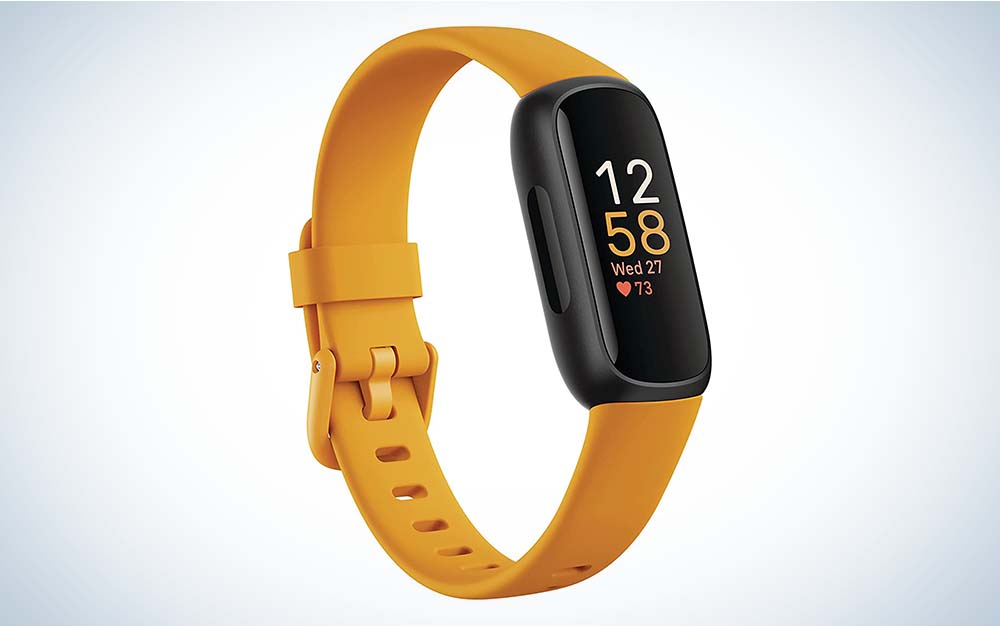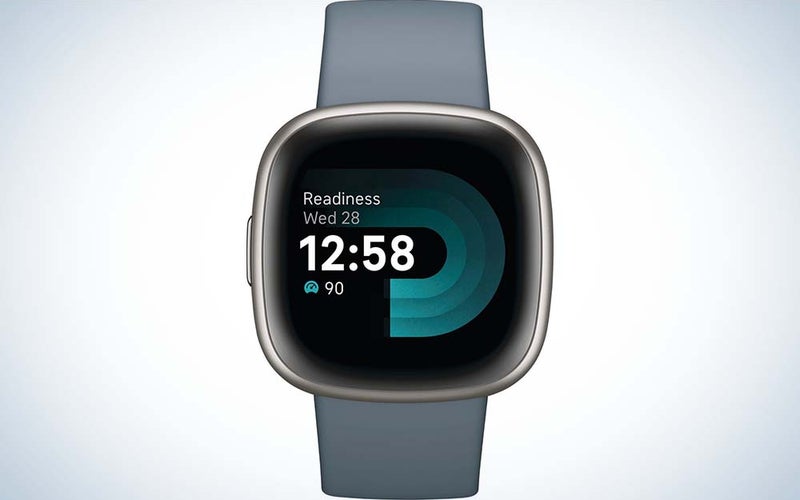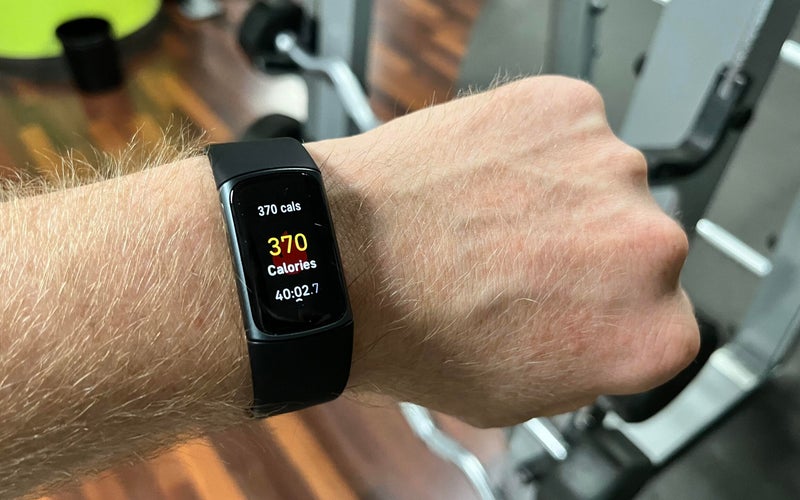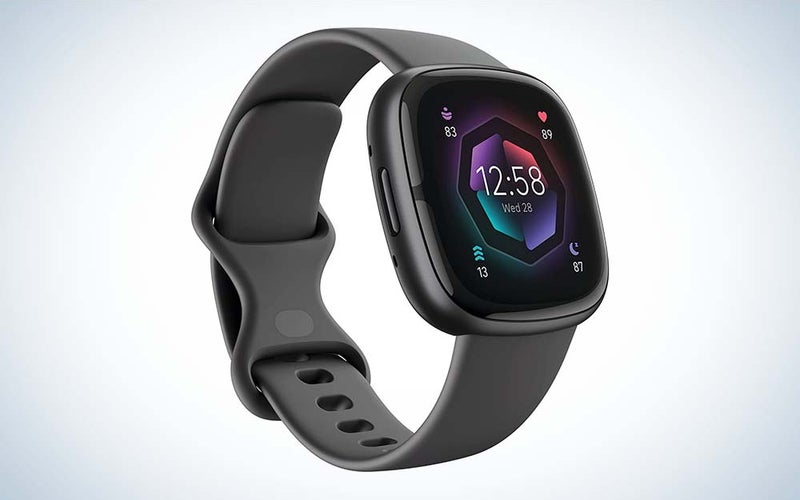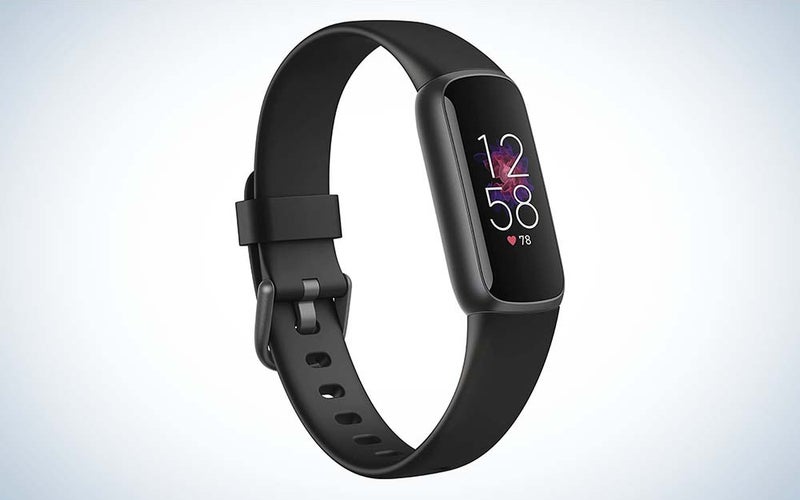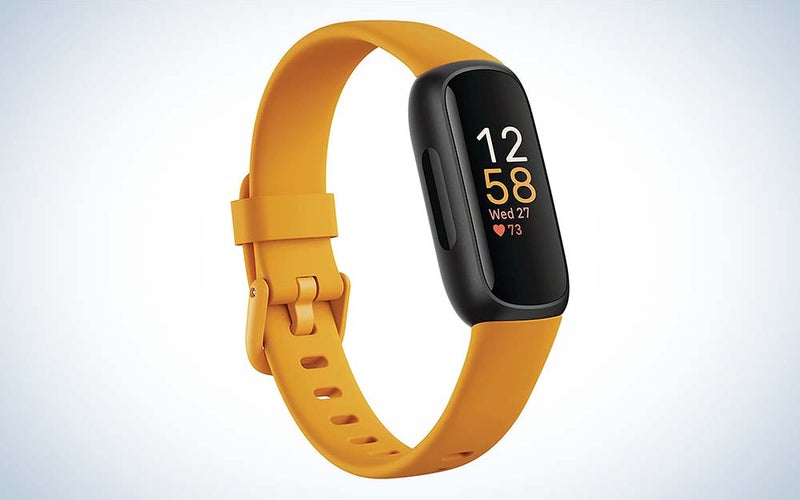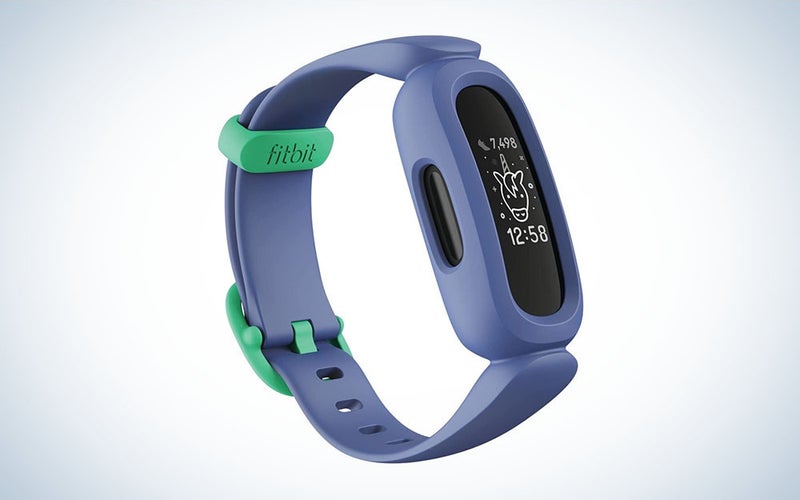We may earn revenue from the products available on this page and participate in affiliate programs. Learn more ›
For many tech and health enthusiasts, Fitbit is the first brand that comes to mind when you say “fitness tracker.” It had, in some circles, briefly achieved that level of cultural ubiquity where people referred to all fitness trackers as “Fitbits.” The market is now saturated—with options from Garmin, Apple, Polar, and Amazfit, just to name a few—but there are still plenty of pros when it comes to devices made by Fitbit, or that use the company’s technology. These fitness trackers and watches deliver outstanding levels of functionality, and each one has its particular benefits. With six types of Fitbits—not to mention multiple generations of each version—it might not be readily apparent which one makes the most sense for you. To that end, we’re looking at the top options for a range of intentions, so you can work out (or swim, or even sleep) with confidence knowing that these are truly the best Fitbits.
- Best overall: Fitbit Versa 4
- Best fitness tracker: Fitbit Charge 5
- Best watch: Fitbit Sense 2
- Best for women: Fitbit Luxe
- Best for men: Google Pixel Watch
- Best budget: Fitbit Inspire 3
- Best for kids: Fitbit Ace 3
How we chose the best Fitbits
I selected these Fitbits through first-hand testing and reviews from real buyers. I tested these alongside fitness trackers, both from Fitbit and other leading brands, such as the Polar Ignite 2 Plus and the Garmin Venu 2 Plus. I specifically tested to determine core functionality like tracker accuracy and battery, as well as the relative ease of use
The Fitbit versions that didn’t make the cut were not always significantly different from those included above, but our picks usually stood out for a reason. You can choose yours from these Fitbit reviews knowing that these truly are the best options available right now.
The best Fitbits: Reviews & Recommendations
While the features offered by the various models tend to overlap—most build up from a base of 20 health and fitness metrics—each individual package tailors itself to a specific set of needs or parameters. To that end, here are the best Fitbits for most people.
Best overall: Fitbit Versa 4
Fitbit
Why it made the cut: With its broad range of fitness tracking capabilities, smartwatch functions, and lower price, the Versa 4 is a balanced fitness watch that plays to Fitbit’s strengths.
Specs
- Heart rate monitor? Yes
- GPS? Yes
- Battery life: 6 days
- Premium membership: 6 months
Pros
- Plenty of fitness tracking functions
- Detailed sleep-tracking information
- Wide range of smart features
Cons
- Higher price than most Fitbits
- Short premium membership window
- Relatively short battery life
For all practical purposes, the Fitbit Versa 4 can do everything that most users want from their fitness tracker. It provides info about steps, heart rate, blood oxygen levels, calories burned, and sleep tracking. It’s also water-resistant down to 50 meters, in case you’re a swimmer. It even buzzes to let you know when you’ve entered your personalized target heart rate for exercise, which it refers to as your “active zone.”
At the same time, the Versa 4 includes plenty of smart functions. You can use it to take calls and receive notifications from your phone or ask Alexa about the weather. Fitbit also features an app ecosystem that’s smaller than iOS or Android but includes apps for music, payments, and more. The Versa 4 and more powerful Sense watch bring a lot of value to the table, but the Versa does so at a lower price, making it a slightly more accessible pick. If you’re looking for a less expensive version, read our review of the Fitbit Versa 3.
Best fitness tracker: Fitbit Charge 5
Nick Hilden
Why it made the cut: With its expansive suite of fitness trackers and detailed workout insights, the Charge 5 is a gym rat’s best friend.
Specs
- Heart rate monitor? Yes
- GPS? Yes
- Battery life: 7 days
- Premium membership: 6 months
Pros
- Workout intensity map
- Stress management tools
- Provides recommendations for workouts, mindfulness, and challenges
Cons
- Subscription required for advanced insights
- Reply to calls and texts function for Android only
If you’re looking for the utmost in fitness-tracking power, the Fitbit Charge 5 delivers. With a full range of fitness and health trackers, it records all the stats you need. What makes it stand out, however, is its workout intensity map, which leverages GPS and various physical data points to highlight when you’re getting the most and least out of your workout. Between workouts, it sends guidance to maintain mindfulness and workout optimization.
Though it’s primarily fitness-focused, it also features a smattering of basic smart functions that allow you to manage payments, plus receive calls, texts, and calendar notifications. Some of these functions only work with Android phones, however.
The one drawback to the Charge 5 is its reliance on a subscription. Like the Whoop 4.0 and other recent high-end fitness trackers, Fitbit gates off many of its most detailed workout insights unless you pay for its Premium membership. You get six months of free access to see if it’s worth the $9.99 a month, but you should probably decide whether or not you’re even open to such an arrangement in the first place.
Best watch: Fitbit Sense 2
Why it made the cut: The Sense 2 is a sleek, powerful smartwatch with advanced fitness-tracking capabilities.
Specs
- Heart rate monitor? Yes
- GPS? Yes
- Battery life: 6 days
- Premium membership: 6 months
Pros
- Fitbit’s largest suite of smart apps
- Includes ECG monitoring and EDA Scan for tracking heart health and stress
- Works with Alexa
Cons
- The most expensive Fitbit
- Relatively short battery life
- Large
If you want a fitness tracker that really leans into smart features, the sleek Fitbit Sense 2 delivers. With the largest suite of smart apps on any Fitbit device, as well as most of the key fitness and health tracking functions, it is the most powerful Fitbit we recommend. Most notably, the Sense includes an ECG for detecting heart health, as well as an EDA Scan app that monitors electrodermal activity and then provides a graph of how your body responds to stress. It is also the only Fitbit to come with a 6-month free trial of the guided meditation app Calm to support any stress management goals you might have.
Given all that, it’s worth noting that the Sense is the most expensive device you can get from Fitbit right now. If you want all the features, the Sense may be the best choice, but it is bigger and more expensive than the rest of the pack.
Best for women: Fitbit Luxe
Fitbit
Why it made the cut: The Fitbit Luxe is a great option if you want a fitness tracker that can double as a piece of jewelry.
Specs
- Heart rate monitor? Yes
- GPS? No
- Battery life: 5 days
- Premium membership: 6 months
Pros
- Stylish design
- Heart tracking
- Stress management tools included
Cons
- Need to connect to phone for GPS
- Doesn’t let you play music
If you’re looking for a fitness tracker that looks more like a bracelet than a military-grade smartwatch, the Fitbit Luxe is a good option. The slim design, polished stainless steel case, and bands available in a range of hues make this an option that works for both work and working out, and one of the best Fitbit watches for women. The Luxe also tracks heart rate, sleep, and breathing rate, plus provides some stress management tools. You can also text and receive call notifications, but you can’t access music or make calls.
This tracker is water-resistant up to 50 meters and has a battery life of up to five days. Unfortunately, you’ll need to connect to the GPS in your phone to see your pace in real-time.
Best for men: Google Pixel Watch
Why it made the cut: This sleek watch can double as a sophisticated timepiece and a high-end fitness tracker.
Specs
- Heart rate monitor? Yes
- GPS? No
- Battery life:
- Premium membership: 6 months
Pros
- Tracks heart rhythms
- Comes with emergency SOS system
- Sophisticated design
Cons
- Only works for Android users
Google bought Fitbit in November 2019, and some of Fitbit’s fitness trackers feature the integration of the parent company’s features. Conversely, Google’s Pixel Watch uses Fitbit’s tracking technology to monitor activity, calories burned, and sleep patterns. It also provides in-depth tracking of the heart rhythm with the ECG feature and has an SOS feature that allows users to contact 911 in the case of an emergency. And the Android-compatible device pairs with Google’s Wear OS system, Pixel phones, and Pixel buds for running.
This Fitbit for men also allows users to get turn-by-turn guidance from Google Maps, make contactless payments, and get calendar alerts. Users can also make phone calls and check their inboxes. But beyond the device’s functionality, it’s also a timepiece that looks great on the wrist with its domed design, AMOLED display, case that comes in a range of colors, and an obsidian band the color of volcanic glass.
Best budget: Fitbit Inspire 3
Fitbit
Why it made the cut: With all the essential fitness tracking capabilities, the Inspire 3 gives you the features you need at a more affordable price.
Specs
- Heart rate monitor? Yes
- GPS? No
- Battery life: Up to 10 days
- Premium membership: 1 year
Pros
- 20 fitness functions
- Long battery life
- Long premium trial
Cons
- Limited smartphone notifications
- Small, hard-to-read screen
If you just need a basic fitness tracker, try the Fitbit Inspire 3. It tracks all the basics—steps, calories, heart rate, etc. It also has more advanced features than other trackers, including active zone alert, cardio fitness scores, and a “daily readiness score” to make sure you let your body recover between workouts.
That said, this cheap Fitbit is very much an essentialist fitness tracker. It has some smartwatch functionality, including notifications for calls, text, and social media. It also offers stress management features and menstrual health tracking. These features require looking at the Inspire 3’s tiny screen, which isn’t ideal for anything beyond the quickest of glances. This is definitely a tracker for people who actively want to avoid the “smart features” and stay focused on working out. Looking to save a few dollars with an older version? Read our review of the Fitbit Inspire 2.
Best for kids: Fitbit Ace 3
Fitbit
Why it made the cut: Arguably the most feature-rich fitness tracker designed specifically for kids, the Ace 3 helps keep your little one moving.
Specs
- Heart rate monitor? No
- GPS? No
- Battery life: Up to 8 days
- Premium membership: Not included
Pros
- Parent View safety feature
- Incentivizes fitness in kids
- Bedtime reminders and sleep tracking
Cons
- Single wristband size doesn’t fit all wrists
- Some users have reported durability issues with the buckle
There aren’t too many quality fitness trackers designed specifically for kids, so the Fitbit Ace 3 is incredibly useful and the best Fitbit for kids. It primarily tracks steps and sleep but can also set challenges to keep kids motivated and active. You can also set reminders to prompt children to get up, move, stretch, or sleep at specific times. Its features are comparatively very limited beyond the basics, but it is water-resistant for up to 50 meters, so it is durable and can stay on in the pool.
The Ace 3 supports the Fitbit app, which features separate viewing modes for parents and kids when you activate the Family Account mode. In Parent View mode, parents can monitor their kid’s activity and approve any connections in the Fitbit social community. Meanwhile, Kid View presents a child-friendly version of the fitness tracker experience, with access to stats, badges, personalized avatars, and challenges.
What to consider before buying a Fitbit
Each Fitbit variety offers its unique features and benefits, so it’s important to keep a few things in mind when choosing which is the best one for you and if that’s the latest Fitbit or old Fitbit models. These are, for the most part, the same considerations to keep in mind when picking any fitness tracker or fitness watch.
Health goals
To judge any fitness tracker, you must know how you plan to use it. Are you looking to track your high-impact workouts or simply ensure you get your steps in? Monitor heart health or blood oxygen levels? Or maybe sleep tracking and monitoring mindfulness? Different Fitbits come with varying feature sets that will accommodate different goals. Often, more complex trackers will be larger, more complicated, and more expensive. Finding the right balance among those three factors will set you up to use your Fitbit to the fullest.
Cost
Fitbits come in many shapes and sizes, meaning some are more expensive than others. Some models cost as little as $60. Others get as high as $400. Again, you want to find a balance between feature-set and price that works for you, but it’s also generally important to keep your budget in mind as you shop.
Smart functions
While some Fitbits act as fairly basic fitness trackers, others are much more elaborate smartwatches. Which is right for you depends on whether or not you need all those smarts.
FAQs
Q: How much does a Fitbit cost?
Prices range from under $60 for the Ace 3 to as much as $400 for the Google Pixel Watch, depending on the most current sale prices.
Q: Are Fitbits waterproof?
All the latest-generation Fitbit models boast strong water resistance in up to 50 meters. They’re all great for swimming laps or playing in a pool. If you’re diving, you may want to consider something a bit more durable.
Q: How do I get my Fitbit to sync?
Once you pair your Fitbit with your phone, it will sync periodically when the Fitbit smartphone app is open. You can manually sync on the app homepage by swiping down.
Q: How accurate are Fitbit devices?
No fitness tracker is 100% accurate. They approximate your activity by sensing movement, heart rate, and other factors. You can improve your tracker’s accuracy by feeding it more data. Enabling GPS and entering accurate height, weight, and stride length in the app settings will improve results.
That said, Fitbit trackers do fare comparatively well in general testing. A 2017 study found that Fitbits tend to have a 27% median error when tracking calories burned. While that might seem like a lot, they outperformed almost all major competitors. There hasn’t been much hard research done since then on the accuracy of Fitbit’s latest releases, but having compared them against other trackers that are well-regarded for their accuracy—as well as good old-fashioned paper-and-pencil calorie tracking—I can say that they seem to perform well.
Final thoughts on the best Fitbits
The best Fitbit for you comes down to one of two factors: whether you want a smartwatch or a fitness tracker and your budget. The core fitness tracking features are largely consistent among most models, so you need to consider whether you care about smartphone-related lifestyle features and the advanced fitness analytics that come with Fitbit’s premium subscription. Ultimately, most Fitbits are great so long as their features and your expectations are in sync.
- Best overall: Fitbit Versa 4
- Best fitness tracker: Fitbit Charge 5
- Best watch: Fitbit Sense 2
- Best for women: Fitbit Luxe
- Best for men: Google Pixel Watch
- Best budget: Fitbit Inspire 3
- Best for kids: Fitbit Ace 3
Why trust us
Popular Science started writing about technology more than 150 years ago. There was no such thing as “gadget writing” when we published our first issue in 1872, but if there was, our mission to demystify the world of innovation for everyday readers means we would have been all over it. Here in the present, PopSci is fully committed to helping readers navigate the increasingly intimidating array of devices on the market right now.
Our writers and editors have combined decades of experience covering and reviewing consumer electronics. We each have our own obsessive specialties—from high-end audio to video games to cameras and beyond—but when we’re reviewing devices outside of our immediate wheelhouses, we do our best to seek out trustworthy voices and opinions to help guide people to the very best recommendations. We know we don’t know everything, but we’re excited to live through the analysis paralysis that internet shopping can spur so readers don’t have to.

